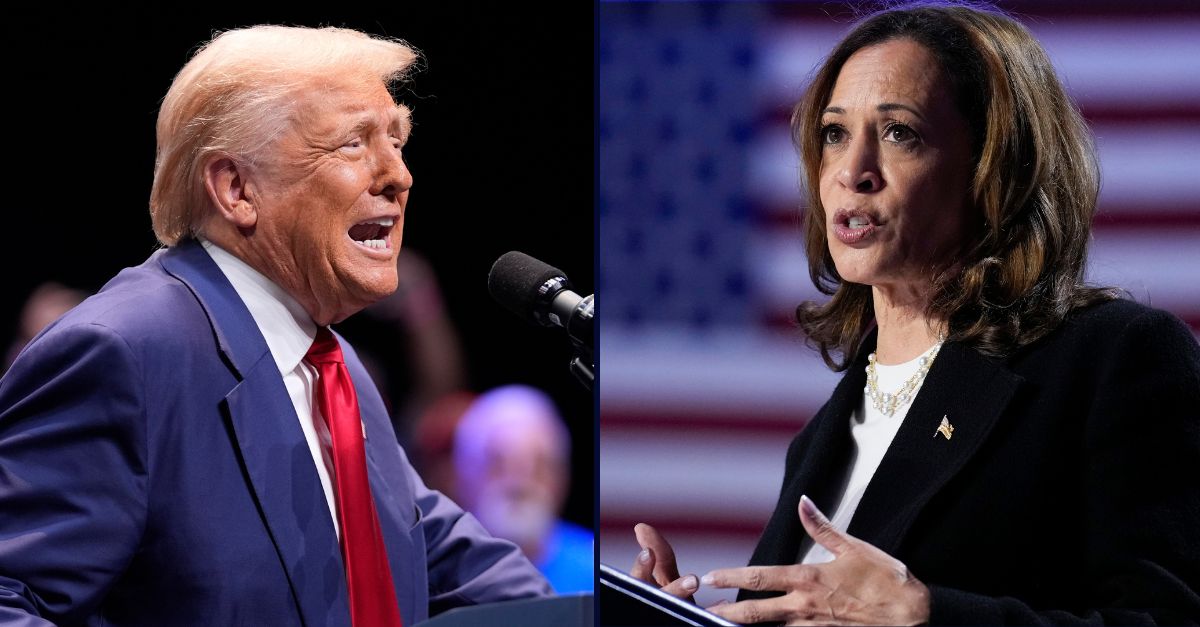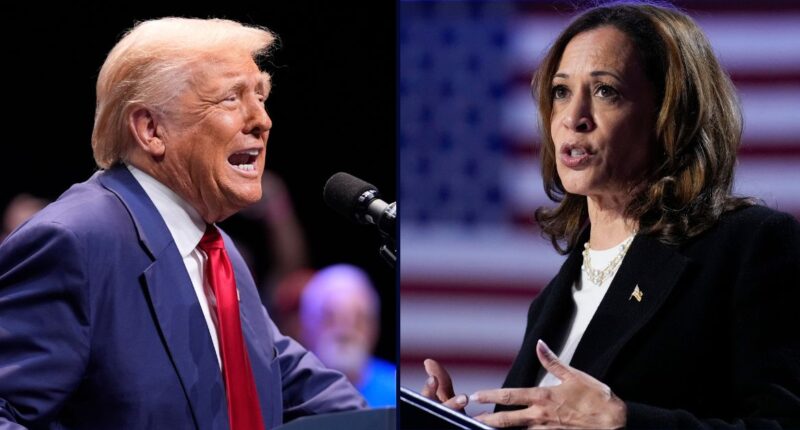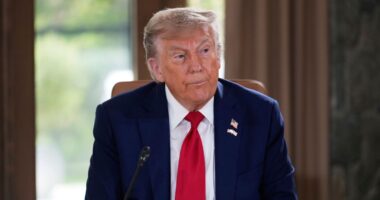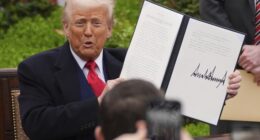
Left: Former President Donald Trump, the Republican presidential nominee, addressed a crowd in Savannah, Georgia, on Tuesday, Sept. 24, 2024. He focused his speech on the tax code and manufacturing. (AP Photo/Evan Vucci)
Right: Vice President Kamala Harris, the Democratic presidential nominee, delivered a speech at a campaign rally in Charlotte, North Carolina, on Thursday, Sept. 12, 2024. The image captures her addressing the crowd with passion and conviction. (AP Photo/Jacquelyn Martin)
Attorneys for CBS on Friday asked a federal judge in Texas to dismiss the deceptive trade practices lawsuit filed against the mainstay American broadcaster by President-elect Donald Trump over an edited “60 Minutes” interview with Vice President Kamala Harris.
Trump filed the 19-page lawsuit on Halloween, claiming the aired footage was deceptively “doctored” to “confuse, deceive, and mislead the public” and to “tip the scales” in favor of Democrats in what amounted to “election and voter interference through malicious, deceptive, and substantial news distortion.”
In the 33-page motion to dismiss, CBS says there is no longer “any live case or controversy” because Trump won the November presidential election. And, the motion claims, Trump never alleged facts sufficient under Lone Star State law to support the litigation anyway.
Texas has long had a thorough set of consumer protection laws — embodied in the Texas Deceptive Trade Practices Act (DTPA).
The DTPA used to be generally considered one of the most vibrant consumer protection statutes in the nation before it was substantially weakened by the GOP-controlled state legislature after heavy lobbying from the insurance industry in 2017.
Under the heading “DECEPTIVE TRADE PRACTICES UNLAWFUL,” the law on point reads, in relevant part:
False, misleading, or deceptive acts or practices in the conduct of any trade or commerce are hereby declared unlawful and are subject to action by the consumer protection division…
[T]he term “false, misleading, or deceptive acts or practices” includes, but is not limited to, the following acts … delivering or distributing a solicitation in connection with a good or service…
The CBS motion argues the broadcast in question was not in any way, shape, or form, related to a commercial solicitation.
“[T]he DTPA was designed to protect Texas consumers engaged in commercial transactions against false, misleading, and deceptive business practices, not to police editorial decisions made by news organizations with which one disagrees,” the filing reads. “President Trump lacks standing under the DTPA. The one thing that President Trump needed to allege, but failed to allege at all, is that 60 Minutes’ editing deceptively induced him to enter into a commercial transaction.”
The motion to dismiss combines an attack on the merits of the lawsuit along with the conservative standing doctrine.
Modern jurisprudence on Article III standing is widely understood by legal scholars as “conservative standing doctrine.” This judicial theory was created in two cases from the 1920s by conservative judges who sought to restrain the use and limits of constitutional redress. In other words, standing doctrine was created in order to limit citizens from suing the government over perceived violations of their rights.
While procedural in nature, as opposed to relying on underlying arguments in a dispute, standing arguments are fact-intensive.
In the present case, CBS says Trump’s victory has divested the court of any would-be jurisdiction under Article III and that Trump’s gripe with the network did not sufficiently allege any actual injury.
“President Trump’s various attempts to allege injury are far too generalized and speculative to confer standing,” the motion goes on. “Just as a federal court ‘is not a legislative assembly, a town square, or a faculty lounge’ it is not a public editor. President Trump’s opinion that CBS ‘crossed a line’ with its editing of the Interview does not constitute a personalized, concrete injury. Moreover, President Trump’s allegation that he ‘stands in the shoes of each Texas voter’ or that ‘the public’ was deceived only confirms the generalized nature of his grievance and his lack of Article III standing.”
Attorneys for CBS also say Trump’s DTPA standing is nonexistent.
President Trump also lacks standing under the DTPA. The purpose of the DTPA is “to protect consumers in consumer transactions.” … Put differently, the plaintiff must allege that “the defendant’s deceptive conduct . . . occur[red] in connection with a consumer transaction….
President Trump does nothing more than allege he is a “consumer” under the DTPA since he “sought and received CBS’s broadcast services.” Yet it is not enough under the DTPA for a plaintiff to allege that he sought and received services. Rather, the DTPA requires that a plaintiff allege with particularity that he “purchased or leased” defendant’s services. Indeed, DTPA claims are subject to Rule 9(b), which requires pleading “with particularity.”
“Nowhere in the Complaint does President Trump allege that he in fact ‘purchased or leased’ any CBS services or, if he had, when, where, or how he did so,” the motion continues. “Because President Trump ‘fails to specify any allegations in support of [his] alleged consumer status,’ he lacks standing to bring the DTPA claim here.”
On the merits, CBS claims the disputed interview “editing was not deceptive” and “addresses issues of utmost public significance.”
“The First Amendment prevents holding CBS liable for editorial judgments the President may not like,” the motion reads.
The network also offers a warning for Trump-appointed U.S. District Judge Matthew Kacsmaryk should the court decide to give the plaintiff leeway in applying the consumer protection statute.
“Under President Trump’s interpretation, the DTPA would become a weapon for any candidate to challenge media coverage they did not like,” the motion goes on. “The DTPA has never been so used and it has no application to the alleged facts here.”







